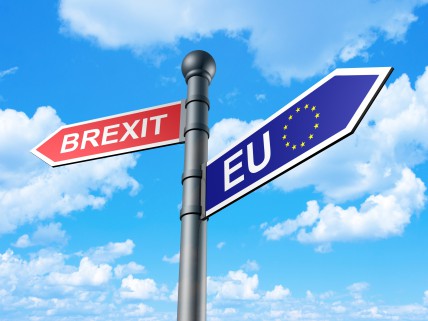There has been a major disruption in the Force—of European unity. “Rebels” from the United Kingdom have broken with the “empire,” the European Union (EU). Through a referendum on June 23 in favor of a “Brexit” (from Britain and exit), the people of Britain have taken a historic step toward regaining their national sovereignty and control over their own affairs—if they can manage the disruptive transition. The UK joined the European Economic Community, the predecessor of the EU, in 1973. No member nation has ever exited the EU, so this is an uncharted path.
Overall the vote to leave the EU was 52 percent to 48 percent, with a turnout of more than 30 million Britons (nearly 72 percent of eligible voters). Outcomes clearly differed among the constituent countries of the UK (which is itself a union—of England, Scotland, Wales, and Northern Ireland): the vote in favor of leaving was 53.4 percent to 46.6 percent in England, and 52.5 to 47.5in Wales; whereas Scotland and Northern Ireland both voted to remain in the EU, by 62–38 and 56–44 percentage margins, respectively. The outcome was a shock to those who campaigned to remain in the EU, which included the sitting prime minister, David Cameron, and much of the “political class.” Cameron, who was responsible for calling for the referendum in the first place, resigned soon afterward, replaced by Theresa May. May will attempt to steer the nation out of the EU, saying, “Brexit means Brexit and we’re going to make a success of it.”
The Brexit campaign was driven chiefly by concerns that the EU imposed too many regulations on business, demanded too much in membership fees for too little in return, and exercised too much control over the UK’s borders. Reducing or restricting the number of people coming to the UK for work or to establish residence is a goal of the Brexiteers. But how will it work? The laws of the EU will remain in effect in the UK until it officially ceases its membership. And the UK is obliged to abide by EU treaties and laws, but UK ministers will have no role in EU decision-making. The process to will commence when the UK officially invokes Article 50 of the Lisbon Treaty of 2009 and EU–UK negotiations will take two or more years to complete.
Image credit: © Alterov/Shutterstock
Related Links
- Brexit: All You Need to Know about the UK Leaving the EU
A basic overview; includes a video “How Does the European Union Work?” and a diagram of the “Steps to UK Leaving the European Union.”
(Source: BBC News, August 10, 2016) - Brexit: The Aftershocks
Links to a miscellany of articles on the UK’s departure from the EU.
(Source: Economist; accessed August 15, 2016) - Making the Rational Case for Brexit
The Twitter feed of @TheBrexiteer (the Leave Alliance).
(Source: twitter.com/thebrexiteer; accessed August 4, 2016) - Brexit
(Source: Wikipedia; accessed August 15, 2016)




